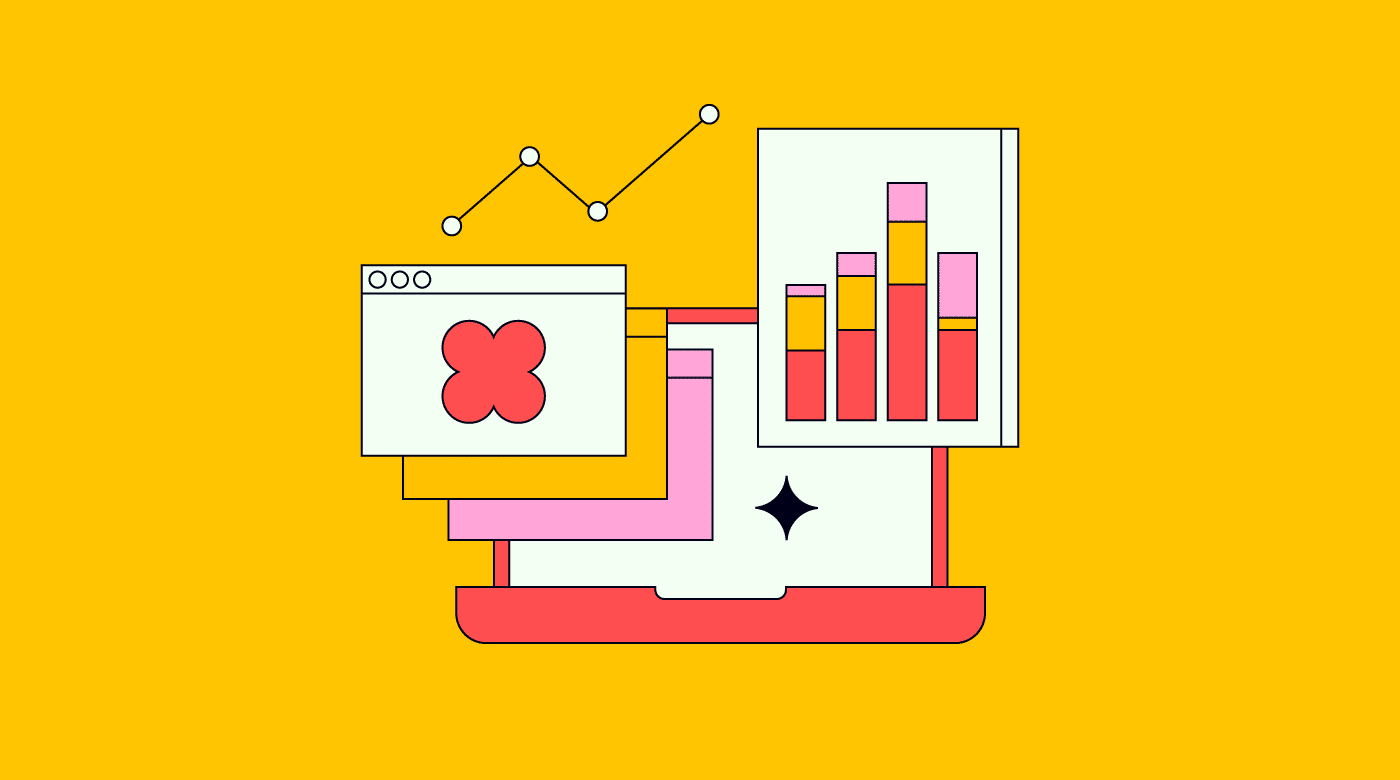Picture this: A seasoned CMO is absorbed in the latest industry news when her heart sinks to read about another prominent company grappling with the repercussions of a data breach, a scenario that has become all too common in the corporate world. Sound familiar? In this article, we'll explore the intricacies of data privacy in B2B marketing, a realm where the stakes are high and the repercussions of non-compliance are even higher for marketing teams.
But before we venture further into data security as a core focus in digital marketing, allow me to introduce myself and the journey that brought me multiple leadership awards. My fascination with B2B marketing and lead generation began long before the digital age, sparked by a strong interest in the subtle art of subliminal advertising and messaging. This early curiosity not only shaped my academic path, leading me to a master's program focused on human behaviors and enhancing customer experiences (CX), but also paved the way for a fulfilling career with the protection of consumer data at the forefront.
With over a decade in the field, I've spearheaded digital marketing initiatives for a diverse range of B2B companies and B2C organizations, adapting to various scales and budgets. This journey has transformed me into more than just a customer experience (CX) practitioner; I am also a skilled educator in this sector, constantly evolving through ongoing research in data privacy and marketing compliance to enhance customer trust and loyalty. As I share my insights through this article, know that leading marketing strategy and CX are not just a profession to me. It's a passionate journey of forging authentic connections between people and brands, a venture I am deeply committed to and excited to help you navigate.
Understanding The Importance Of Data
In the dynamic landscape of the digital era, data serves as a powerful tool that shapes marketing strategies and nurtures customer relationships, propelling businesses toward growth and success. However, this requires a profound understanding and adherence to data privacy and cybersecurity regulations.
As CMOs and B2B company leaders in the SaaS sector, steering your organization through the intricate web of personal data compliance is not just a responsibility but a prerequisite for fostering a resilient and trustworthy brand. This article is enriched with insights from various expert sources, and aims to illuminate the path to achieving customer data compliance in B2B marketing, ensuring business prosperity and legal safety for the greater good.
What Is B2B Data?
B2B data encompasses a wealth of information gathered about other businesses, serving as a cornerstone in fostering beneficial business collaborations and enhancing product offerings. This data, ranging from company demographics to behavioral insights, facilitates targeted marketing strategies and informed decision-making, paving the way for successful business ventures and improved customer experiences without jeopardizing privacy legislation.
What Is B2B Data Compliance & Security?
B2B data compliance and security signify the adherence to legal and ethical guidelines that govern data collection, usage, and consumer data protection. It mandates the implementation of robust safeguards against unauthorized first-party data access and manipulation, fostering a secure and trustworthy business environment that fuels reliability and integrity across diverse customer demographics.
Data-Related Legal Terms To Know
To adeptly navigate the data privacy and B2B data compliance landscape, understanding the following legal terms is valuable and essential for email marketing, social media, and related lead generation campaigns:
- Digital Identity: A digital representation of an individual's personal data and online behavioral insights, serving as a cornerstone in personalized marketing strategies.
- Personally Identifiable Information (PII): Information that distinctly identifies an individual, forming the basis of personalized marketing campaigns.
- Personally Protected Information (PPI): A category of PII that encompasses sensitive data requiring heightened protection measures to safeguard individual privacy.
- Anonymization: The process of erasing identifiable elements from data to prevent individual identification, a critical step in ensuring data privacy.
- Pseudonymization: A data management strategy where personal identifiers are replaced with artificial ones, hindering the direct association of data with specific individuals, thereby enhancing data security.
- Consent: The explicit permission granted by individuals for the collection and processing of their consumer data, a fundamental aspect of data privacy regulations.
- Explicit Consent: An unequivocal agreement by individuals to allow data processing for specified purposes, fostering transparency and trust.
- Unambiguous Consent: Consent is characterized by individuals' clear intention to agree to data processing, a vital component in data collection practices for digital marketing.
- Opt-in Consent: A method where individuals actively consent to data processing, promoting responsible data collection practices for email marketing, CRM and related activities.
- Opt-out Consent: A method where individuals can decline data processing, empowering them to have control over their data based on data protection laws.
- First-party Data: Data directly collected from individuals by the organization they interact with, forming the foundation of personalized marketing strategies.
- Second-party Data: The exchange between organizations, typically through partnerships or alliances, facilitates collaborative marketing efforts.
- Third-party Data: Data procured from external sources, not directly collected by the organization utilizing it, a valuable resource in expanding marketing reach and lead generation.
- Walled Gardens: Closed ecosystems where the collected data is not disseminated to external parties, ensuring data security and privacy.
- Legitimate Interest: A legal ground for processing personal data without consent, provided it serves a legitimate purpose, a critical aspect in data privacy regulations.
Benefits Of Compliant B2B Data In Marketing
Adherence to data compliance not only shields your business from legal ramifications but also provides numerous benefits that enhance your brand's credibility and success:
1. Increased Trust with Customers: Upholding and securing customer data in marketing communications fosters a relationship grounded in trust and openness, paving the way for long-term business collaborations.
2. Improved Brand Image: Compliance with data privacy norms enhances your brand's reputation, portraying you as a responsible and ethical entity in the business landscape.
3. Compliance with the Law: Observing legal standards helps avert substantial fines and legal disputes, safeguarding your business's integrity and financial stability.
4. Reduced Likelihood of Data Breaches: Implementing stringent data security protocols diminishes the risk of data breaches, safeguarding sensitive B2B data and fostering a secure business environment.
5. Cleaner Databases: Compliance ensures the collection of relevant and accurate data, facilitating more effective and targeted email marketing and other customer campaigns, thereby optimizing business outcomes.
Best Practices For Data Privacy
To adeptly navigate the intricacies of data privacy, adopting the following best practices is essential:
1. Understanding Legal Obligations: Keep updated with your region's latest data privacy laws and Cybersecurity regulations, fostering a culture of compliance and awareness within your organization.
2. Implementing Robust Security Measures: Utilize advanced security technologies to shield different types of data from unauthorized access and breaches, ensuring the safety and integrity of sensitive information.
3. Transparency with Customers: Clearly articulate your data collection and usage policies to customers, fostering transparency and trust and building a reputation of reliability and integrity. Leverage your sales teams to communicate your privacy practices, which can be a competitive advantage when closing deals. Too many companies say they protect sensitive data but not really doing it right. Privacy compliance can be a business game changer.
4. Regular Training and Awareness Programs: Organize regular training sessions to educate employees on the significance of protecting sensitive data and the best practices to follow, fostering a workforce that values data privacy and security as a brand differentiator.
5. Data Minimization: Restrict data collection to what is necessary for your business operations and digital marketing, avoiding unnecessary hoarding and fostering responsible customer data management practices.
Important Privacy Laws and Data Privacy Regulations to Know (The GDPR & CCPA)
Globally, several laws govern data privacy. In the US, the California Consumer Privacy Act (CCPA) and the General Data Protection Regulation (GDPR) in Europe are prominent legislations that dictate customer data protection standards. In Canada, the Personal Information Protection and Electronic Documents Act (PIPEDA) regulates the collection and utilization of personal data. Comprehending and complying with these laws is vital to successful B2B marketing endeavors, safeguarding your business from legal repercussions and fostering a reputation of sensitive data compliance and reliability.
Conclusion
Navigating the intricate maze of data privacy regulations in B2B marketing and lead generation is tough. It requires insight, expertise, and an ongoing commitment to ethical business practices as part of your marketing strategy. As we have explored in this article, it's evident that personal data compliance isn't just a legal requirement such as the Data Protection Act and GDPR compliance dictates, but an opportunity to build stronger, more authentic, loyal bonds with your clients, enhancing the overall customer experience.
In a business environment where customer data has become a vital asset, safeguarding it should be a top priority for marketing teams, sales teams, and all internal stakeholders. This endeavor goes beyond just meeting legal privacy legislations; it's about fostering a culture where data privacy and compliance are celebrated as a hallmark of your brand's integrity and dedication to offering a superior customer experience.
As we stand at the dawn of a new era in B2B marketing, I urge you to embrace data privacy practices not as obstacles but as powerful tools for nurturing trust and transparency. By weaving customer data compliance seamlessly into the fabric of your business operations, you protect your organization from potential legal setbacks and elevate your brand to a position of reliability and respect.
Remember, in the broader perspective, user data compliance is not a final destination but a continuous journey. A journey where each step towards safeguarding customer data is a stride toward crafting a brand that resonates with authenticity, responsibility, and excellence. Together, as B2B Marketers, let's champion the cause of data privacy, guiding the digital marketing sector towards a future where honesty, integrity, and an exceptional customer experience are the benchmarks of unparalleled success.
Enjoyed this article? Be sure to follow The CMO on LinkedIn and subscribe to the newsletter to get the best of all things marketing and leadership straight to your inbox.




